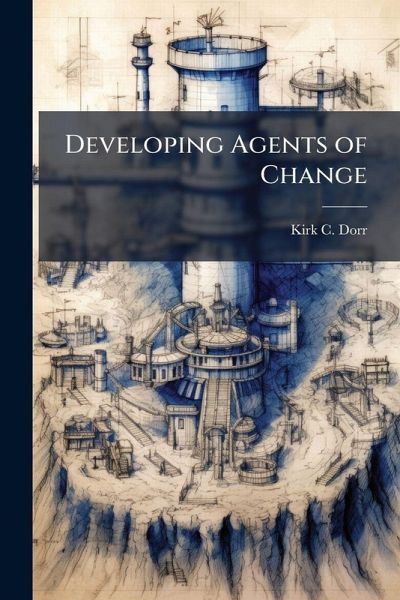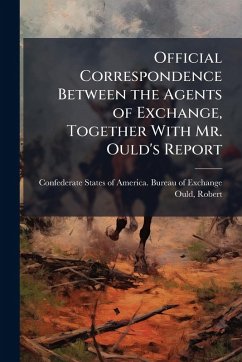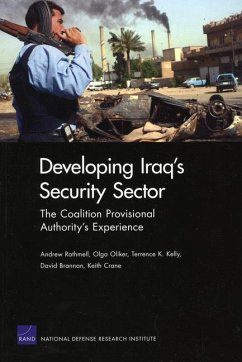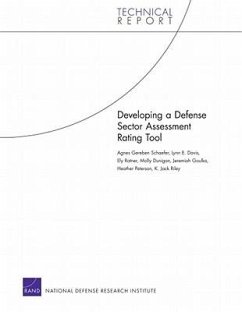
Developing Agents of Change
Versandkostenfrei!
Versandfertig in über 4 Wochen
15,99 €
inkl. MwSt.
Weitere Ausgaben:

PAYBACK Punkte
8 °P sammeln!
This monograph discusses the challenges of maintaining the Army's effectiveness through the process of change. As conditions of warfare change, the methods and techniques of our doctrine must evolve with them. Knowing what to change will be more difficult and risk-laden as the rapid rate of technology and the relative brevity of future operations across the spectrum of conflict combine to create a situation where the consequences of peacetime choices become irretrievable in war. This study addresses the role of professional military education in creating cultural change within the military. Th...
This monograph discusses the challenges of maintaining the Army's effectiveness through the process of change. As conditions of warfare change, the methods and techniques of our doctrine must evolve with them. Knowing what to change will be more difficult and risk-laden as the rapid rate of technology and the relative brevity of future operations across the spectrum of conflict combine to create a situation where the consequences of peacetime choices become irretrievable in war. This study addresses the role of professional military education in creating cultural change within the military. This paper examines the model of the Prussian, later German Kriegsakademie, to demonstrate how modern military organizations can be effective in shaping culture to attain high performance on the battlefield. This work has been selected by scholars as being culturally important, and is part of the knowledge base of civilization as we know it. This work was reproduced from the original artifact, and remains as true to the original work as possible. Therefore, you will see the original copyright references, library stamps (as most of these works have been housed in our most important libraries around the world), and other notations in the work. This work is in the public domain in the United States of America, and possibly other nations. Within the United States, you may freely copy and distribute this work, as no entity (individual or corporate) has a copyright on the body of the work. As a reproduction of a historical artifact, this work may contain missing or blurred pages, poor pictures, errant marks, etc. Scholars believe, and we concur, that this work is important enough to be preserved, reproduced, and made generally available to the public. We appreciate your support of the preservation process, and thank you for being an important part of keeping this knowledge alive and relevant.












